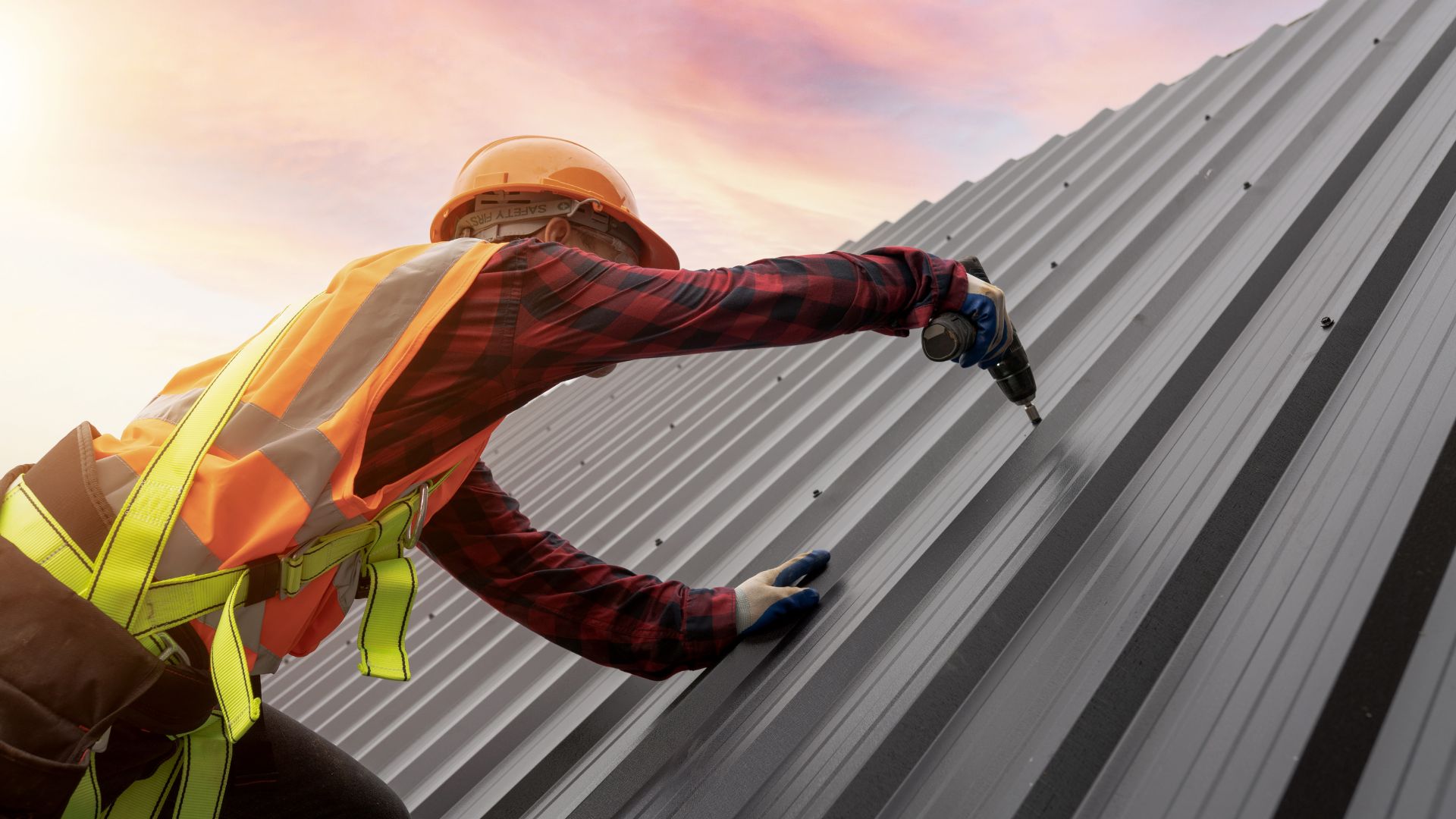In the intricate world of commercial property management, the integrity of a roofing system goes beyond just shielding the interior from the elements; it plays a pivotal role in protecting assets and ensuring uninterrupted business operations. This guide, meticulously curated by Shield Roofing, dives into the essential considerations that property managers, business owners, and developers must navigate to ensure the success and longevity of their commercial roofing projects.
Assessing Roofing Needs

Initial Evaluation: Understanding the current state of your commercial roof is the first step in any roofing project. This initial evaluation should be thorough, considering the roof’s age, visible damage, and any history of repairs. Such an assessment will help in deciding whether a complete replacement or a repair job is necessary.
Understanding Roofing Systems: Commercial roofs come in various designs, including flat, low-slope, and pitched roofs, each compatible with different materials like TPO, EPDM, or metal. The choice among these systems should align with the building’s architecture, climate conditions, and specific usage needs, ensuring the most efficient protection and energy savings.
Choosing Roofing Materials
Material Options: Today’s market offers a vast array of materials suited for commercial roofing, each with unique benefits. For instance, TPO roofing is known for its heat-reflective properties, while EPDM excels in durability. Metal roofing, though more costly upfront, provides longevity and can significantly enhance a building’s aesthetic.
Factors to Consider: The selection of roofing materials is influenced by several key factors. Climate plays a crucial role; materials that can withstand local weather extremes are preferable. Additionally, the building’s use—whether it houses heavy machinery that emits heat or is a standard office space—affects the choice. Energy efficiency requirements and budget constraints also guide this decision, balancing initial costs against long-term savings and sustainability goals.
Selecting a Roofing Contractor
Qualifications and Experience: The complexity of commercial roofing projects demands a contractor with specific expertise in this field. Shield Roofing emphasizes the importance of verifying a contractor’s qualifications, including their experience with similar projects, licensing status, and insurance coverage.
Verification Process: When selecting a contractor, it’s vital to conduct due diligence. Ask for references and portfolios of previous work. Check online reviews and ratings. Ensure they have a solid track record of completing projects on time and within budget. Transparent communication about the project scope and expectations is also fundamental to a successful partnership.
Budgeting and Financing
Cost Estimation: Accurately estimating the cost of a commercial roofing project involves considering the price of materials, labor, and any unforeseen issues that might arise during the installation. It’s wise to allocate a portion of the budget for unexpected costs to avoid financial strain as the project progresses.
Financing Options: Financing a commercial roofing project can be approached through various avenues, including traditional loans, leasing options, or through incentives for implementing energy-efficient roofing solutions. Understanding these options and their implications for both short-term cash flow and long-term investment recovery is crucial for making an informed decision.
Navigating Permits and Regulations
Local building codes and regulations set the standards for commercial roofing projects. Familiarizing yourself with these requirements and obtaining the necessary permits before work begins is essential to ensure compliance and avoid legal complications. This process can be complex, underscoring the value of partnering with experienced contractors like Shield Roofing, who are well-versed in local codes and can navigate the permitting process efficiently.
Planning for Installation
The installation of a commercial roof is a significant undertaking that requires careful planning to minimize disruptions to daily operations. Discussing the project timeline with your contractor, setting realistic expectations for the project’s duration, and strategizing on ways to reduce the impact on your business are key steps in the planning phase. Effective communication with stakeholders, including employees and tenants, about the schedule and any necessary adjustments to parking or building access, ensures a smoother transition through the installation process.
Understanding Warranties
Warranties play a critical role in protecting your investment in a commercial roofing project. Differentiating between manufacturer’s warranties, which cover materials, and workmanship warranties, which cover installation, allows you to understand the extent of your coverage. Knowing what to look for in a warranty, including length of coverage, what’s included and excluded, and the claims process, provides peace of mind and clarity on how to address future issues.
Maintenance and Upkeep
Regular maintenance is paramount for extending the lifespan of your commercial roof. Establishing a routine inspection and maintenance schedule helps in identifying and addressing minor issues before they escalate into costly repairs. Common maintenance tasks may include cleaning gutters, removing debris, and checking for signs of wear or damage. Proactive maintenance not only preserves the integrity of the roof but also maintains the validity of warranties and reduces the overall cost of ownership.
The Future of Commercial Roofing
The commercial roofing industry is on the cusp of significant change, driven by advancements in materials and construction techniques. Innovations such as green roofing systems, which incorporate living plants, and solar roofing, which integrates photovoltaic cells, are becoming increasingly popular. These trends not only represent a shift towards more sustainable and energy-efficient solutions but also offer businesses the opportunity to reduce their environmental impact and benefit from potential energy savings. As these technologies continue to evolve and gain traction, commercial property owners will have more options at their disposal to meet both their roofing needs and sustainability goals.
The complexities of commercial roofing projects require careful consideration of a variety of factors, from the initial assessment of roofing needs to the selection of materials and the hiring of a qualified contractor. Budgeting, navigating permits, and understanding warranties are also crucial components of the planning process. With the future of roofing leaning towards sustainable and energy-efficient solutions, now is an opportune time for commercial property owners to consider how their roofing choices can contribute to broader environmental objectives.
Shield Roofing stands ready to assist you in navigating the intricacies of your commercial roofing project. Our expertise in the latest roofing technologies and commitment to quality ensure that your project will be handled professionally from start to finish. Contact us today to learn how we can help you achieve a durable, efficient, and sustainable roofing solution for your commercial property.
Don’t let the complexity of commercial roofing projects overwhelm you. With Shield Roofing by your side, you can confidently embark on your roofing project, knowing that you have a partner committed to achieving the best possible outcome for your property. Reach out to us to discuss your commercial roofing needs and discover how we can bring our expertise, innovation, and commitment to sustainability to your next project. Together, we can ensure that your roofing project is a success, now and into the future.
